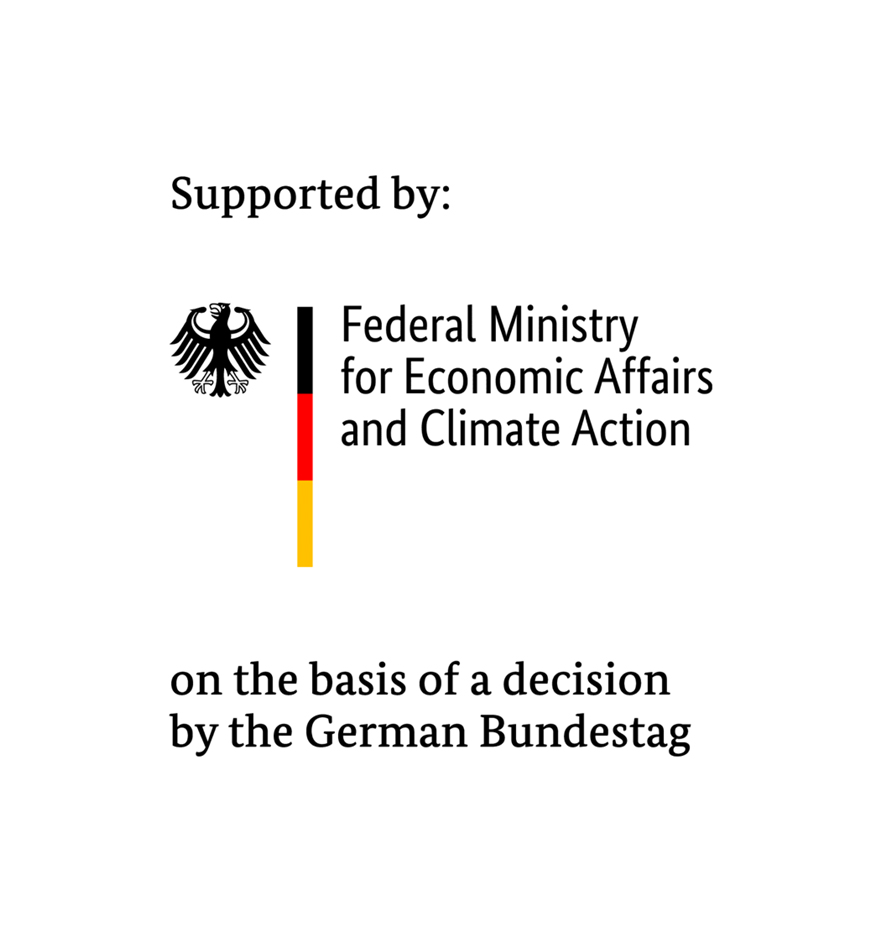Reliability and Monitoring of Power Converters in Wind Turbines
| Funding: | German Federal Ministry for Economic Affairs and Climate Action (BMWK) |
| Total funding: |
EUR 1,168,802.45 |
| Partners: | Institute for Drive Systems and Power Electronics (IAL) of Leibniz University Hannover, Institute for Electrical Drives, Power Electronics and Devices (IALB) of University of Bremen, RWE Renewables GmbH, Ingenieurbüro Hoffmann GmbH, ABB Group, Vattenfall AB, ZOPF Energieanlagen GmbH, BLOCK Transformatoren-Elektronik GmbH |
| Term: | 03/2023 – 02/2026 |
- Power converters of wind turbines are particularly frequently affected by failures.
- According to field data analyses by Fraunhofer IWES, the converters show pronounced early failures and particularly climatic influences have a relevant effect on the converter reliability.
- The goals of the »ReCoWind2« research project are to further narrow down the causes of failures, to enable condition monitoring of the converters, and to develop improved test procedures.
- Fraunhofer IWES is coordinating the project and is intensively involved in all technical work packages.
The challenge
Power converters are among the subsystems of wind turbines most frequently affected by failures. They play a central role in the turbines: As the link between the generator and the transformer, they ensure a grid-compliant connection of the turbines to the power grid.
Field data analyses conducted by Fraunhofer IWES have revealed a pronounced early-failure behavior during the first years of operation. In addition, a significant effect of climatic influences, especially humidity, on converter reliability has been found. However, numerous questions are still open, such as the role of grid events or vibration loads. In addition, for power converters there is a lack of condition monitoring systems (CMS), which are already standard equipment for mechanical drive train components in modern wind turbines, as well as of validated test methods to identify and exclude flaws in the manufacture or design of the converters as causes of failures.
The solution
In the »ReCoWind2« project, these gaps are to be closed. The overall objective is to improve the reliability of converters in wind turbines.
The researchers will therefore further narrow down weak points and causes of failure on the basis of existing and new data. The root-cause analysis will be expanded from the low-voltage converters prevailing in the field to the medium-voltage converters that are attractive for multi-megawatt turbines. Improved remote diagnostics offer the potential to reduce maintenance times. At the same time, measurement technology and algorithms for broadly effective CMS covering the relevant failure mechanisms are to be developed to enable condition-based maintenance. The researchers are building on the results of the previous project »ReCoWind«. Among other approaches, machine learning methods are being used.
Field measurement campaigns, in which the loads on converters during transport, storage and operation are recorded, will provide the researchers with the data they need to develop improved test procedures and test profiles.
Fraunhofer IWES, which coordinates the project, is intensively involved in all technical work packages of the project. The work of IWES focuses on data analysis (failure, operating and high-frequency fault record data from the field, condition monitoring measurement data, data from field measurement campaigns) and the associated method development, in the area of experimental work for determination of suitable damage indicators, measurement technology development and testing for condition monitoring, in the execution and evaluation of field measurement campaigns, in field data-based modeling, and in the development of improved test procedures and profiles.
The added value
The frequent and unexpected failure of power converters causes considerable costs and production losses, which is ultimately reflected in the cost of electricity. Improved reliability, better maintenance planning through condition monitoring systems, and thus higher availability of wind turbines contribute significantly to further reducing the costs of wind energy.
More info about the previous project »ReCoWind«: ReCoWind (fraunhofer.de)
